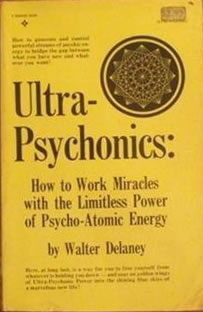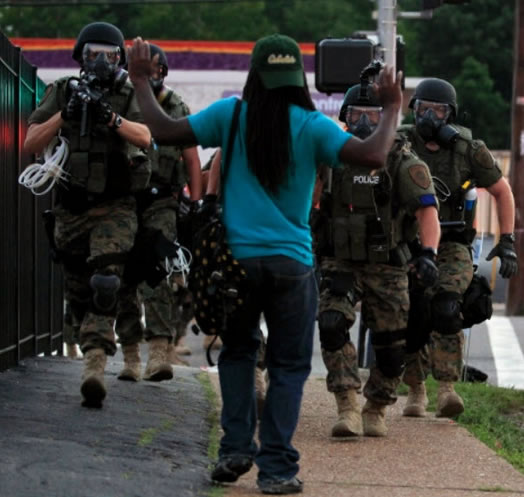From Abracadabra to Zombies
The Skeptic's Dictionary Newsletter
Volume 13 No. 8
August 2014
“Does a man of sense run after every silly tale of hobgoblins or fairies, and canvass particularly the evidence? I never knew anyone that examined and deliberated about nonsense who did not believe it before the end of his enquiries.” ― David Hume
What's New?
The only entry to The Skeptic's Dictionary added since the last newsletter is Rick Simpson and the Cannabis Cures Cancer hoax.
I also posted Science Channel Catering to Irrationality and Superstition on the Skeptimedia blog. (About a program called The Unexplained Files.)
There were updates to the following: negativity bias (political ideology and negativity bias), climate change deniers (seemingly informed citizens harp on the inadequacy of climate chance models and other things they know nothing about), and GMOs (Mike Adams gets the attention of the FBI). (For more on Mike Adams, click here.)
Ultra Psi Con
In episode 532 of "This American Life," Ira Glass introduces a segment called "I Believe I Can Fly."
There's this book full of magic words that one of our contributors, Jonathan Goldstein, found in his apartment when he was moving recently. He hadn't looked at it in over 30 years. It's called Ultra-Psychonics--How To Work Miracles With The Limitless Power Of Psychoatomic Energy. It was written by a man named Walter Delaney, published in 1975.
The book's premise, its basic premise, is that just as objects are composed of atoms, thoughts are composed of psychic atoms, or what Delaney calls psychons, ultrons, and egons. I'm just going to let Jonathan explain what all that means.
Goldstein describes the promises on the frayed yellow dust jacket of the copy of Ultra-Psychonics that his father had bought at a used book store and gifted to his 11-year-old son:
...a grab bag of every occult/ parapsychology/self-help topic under the sun, all in 237 pages. Among other things, the book promised to teach you how to shoot mental laser beams, move solid objects with your mind, make others obey your command, multiply your brain power by a factor of 1,000, and defend yourself against demonic attack.
 After reviewing several outlandish claims made by Delaney, Goldstein reveals that Delaney's real name was Joseph Schaumberger and that he had written the book to cash in on the popularity of such books. Schaumberger worked as an editor in a publishing house that specialized in occult books promising magical powers to those who read them and followed their imaginative and sciencey-sounding recipes. He saw that the authors of such books were making much more money than he made editing them. So, he decided to write one of his own. The pseudonym "Delaney" was lifted from a brand of urinal--the Delaney Flush Boy. The pseudo-ideas and pseudo-powers that fill the pages of Ultra-Psychonics, however, sprung from the research and imaginative mind of Mr. Schaumberger himself.
After reviewing several outlandish claims made by Delaney, Goldstein reveals that Delaney's real name was Joseph Schaumberger and that he had written the book to cash in on the popularity of such books. Schaumberger worked as an editor in a publishing house that specialized in occult books promising magical powers to those who read them and followed their imaginative and sciencey-sounding recipes. He saw that the authors of such books were making much more money than he made editing them. So, he decided to write one of his own. The pseudonym "Delaney" was lifted from a brand of urinal--the Delaney Flush Boy. The pseudo-ideas and pseudo-powers that fill the pages of Ultra-Psychonics, however, sprung from the research and imaginative mind of Mr. Schaumberger himself.
Here's his recipe for ultra-levitation:
One, remove all your clothes and stand on a bathroom scale. Two, generate the ultronic power globe on a string as you did for the ultronic poltergeist technique. Three, concentrate on making it a rise like a balloon, lifting you with it. Four, keep your eyes on the scale. It will start to drop bit by bit, showing that you are getting lighter.
It didn't work, of course, nor did the recipe for ultra-telepathy. None of the recipes Delaney had concocted for his sorcerer's cookbook worked, but young Jonathan assumed it was because he wasn't doing it right. He wasn't following the instructions correctly.
I wasted hours in bed lying flat on my stomach with the book open at my side, squinting so hard that my vision began to blur as I tried to close the bedroom door with my mind. Even though I had, as the book instructed, dutifully turned on the ultronic generator in my head to stimulate my flow of voltrons, I was getting nowhere.
The fact that none of the recipes in Ultra Psychonics for developing super powers worked is not so amazing. Nor is it amazing that an 11-year-old American kid in the 1970s would take seriously such a book. What is amazing is that Ultra-Psychonics is still around and has become a collector's item of sorts. Used copies are available through Amazon for as little as $62. So are lots of other books with equally preposterous titles and recipes for turning the average weak and powerless schmuck into a being with magical powers worthy of the finest comic book action hero or the slickest miracle worker in the holiest of holy scriptures. The nearly omniscient Amazon reports that readers who bought Ultra-Psychonics also bought other books with titles like Telecult Power: The Amazing New Way to Psychic and Occult Wonders;The Occult Sciences: How to Get What You Want Through Your Occult Powers; Psychic Telemetry: New Key to Health, Wealth, and Perfect Living; Metabionics: The Mystic Power of the Mind; Hypno-cybernetics: Helping yourself to a rich, new life; and PSYCHOTRONIC MAGICK: Constructing Electronic Devices to Amplify the Power and Effectiveness of any type of Ritual Magic, Sorcery, Remote Viewing, and Remote Influence. The authors of these and other similar books probably made more money than their editors did. Their readers, on the other hand, wasted a few bucks and a few hours and probably ended up staring at the ceiling or a closed door while blaming themselves for their failure to perform miracles.
According to Schaumberger's daughter, his book made him enough money "to buy a large, beautiful house and take his wife on European vacations where they went to operas." She also said that Schaumberger received boxes and boxes of letters from readers thanking him and requesting further guidance. Why don't I feel I needed any psychic powers to see that coming?
Political Skepticism
Most skeptics don't do politics unless religion is involved. Some don't do religion unless politics is involved. Most skeptics, however, whether they do politics or religion, claim to be involved in some sort of consumer protection. They have no problem with criticizing and debunking various so-called alternative health practices. People are risking their lives and wasting their money on treatments that provide false hope at worst and some sort of placebo effect at best. Most skeptics have no problem with criticizing and debunking pseudoscientific ideas such as perpetual motion machines, free energy claims, and junk science programs that promise to unleash all that potential you have in your brain, your heart, or your body. People are wasting their time and their money on programs and devices that have no plausible scientific support. Most skeptics have no problem criticizing and debunking people who claim to be psychic. People are being emotionally manipulated at great expense by those who claim to get messages from the dead or see into the future. So why--when people are being manipulated, robbed, or physically and emotionally abused by those cloaked in the authority of religion or the state--do some skeptics balk at going there to criticize and debunk? One answer is tradition: skeptics have traditionally focused on exposing psychic fraud, paranormal mischief, and pseudoscientific quackery. In any case, there are only a few prominent skeptics who stay away from anything to do with religion, but most still do not spend much time scrutinizing the political scene for deception, fraud, abuse, unethical extortion of money, and lies that do much more damage to us than all the psychics, supplement pushers, cancer quacks, detoxers, and promoters of brain-enhancing exercises put together.
 Consider what happens when a person changes from street clothes to a police uniform, badge, club, and gun. Add to that a shield and a tear-gas mask. What happens when you dress up like a storm trooper and are joined by many other fellow cops also dressed like storm troopers? Guess how crowds of usually peaceful people living in a usually peaceful place react when confronted by an en masse military entourage in full riot gear moving their way? One local citizen wrote a letter to the editor of the Sacramento Bee defending police wearing riot gear and camo, carrying guns and looking as if they are hunting terrorists rather than trying to keep the peace.
Consider what happens when a person changes from street clothes to a police uniform, badge, club, and gun. Add to that a shield and a tear-gas mask. What happens when you dress up like a storm trooper and are joined by many other fellow cops also dressed like storm troopers? Guess how crowds of usually peaceful people living in a usually peaceful place react when confronted by an en masse military entourage in full riot gear moving their way? One local citizen wrote a letter to the editor of the Sacramento Bee defending police wearing riot gear and camo, carrying guns and looking as if they are hunting terrorists rather than trying to keep the peace.
If police and law enforcement [in Ferguson, MO] were dressed in Hawaiian shirts, sandals, shorts and sprayed room freshener instead of tear gas, would the results have been different? I would venture to say it would have been worse.
True. But had they left the room freshener at the station and handed out Hawaiian leis and piña coladas. things might have turned out better.
Seriously, though, where do suburban police forces, like that in Ferguson, MO, get all this storm trooper equipment? Apparently, our entire nation is dotted with equally or better (from a military standpoint) equipped police departments thanks to a nearly endless bankroll from the federal government under the guise of Homeland Security. By
2011, New York State alone had been granted $377,844,007 to beef up security. New York City is a virtual replica of something Kafka or Orwell might have dreamed up, including the overwhelming support of the local citizenry with having surveillance cameras nearly everywhere. One place that isn't completely covered by cameras in NYC yet is the subway system, but that project is under consideration. NYC is not an aberration; it is a model for the rest of  the country. My little town of Davis, California, just acquired a $689,000 Mine-Resistant, Ambush-Protected vehicle at no cost from the military. The gift is part of a federal program that lets the Defense Department give away excess military equipment to law enforcement agencies. According to the Sacramento Bee: "More than 8,000 law enforcement agencies nationwide have acquired equipment ranging from aircraft to office supplies to weapons through what the Defense Logistics Agency calls its 1033 Program....A Washington Post report last week cited government figures showing the 1033 Program had handed out more than $5.1 billion in equipment nationwide since 1997." Law enforcement officials say the program helps their cash-strapped agencies obtain expensive and valuable assets to bolster anti-crime efforts. Critics wonder what anti-crime effort requires a Mine-Resistant, Ambush-Protected vehicle. Do the Davis police need this to make their way safely to terrorist havens in the suburbs or to bars that have been surrounded by mines, put there by crazed, thirsty university students?
the country. My little town of Davis, California, just acquired a $689,000 Mine-Resistant, Ambush-Protected vehicle at no cost from the military. The gift is part of a federal program that lets the Defense Department give away excess military equipment to law enforcement agencies. According to the Sacramento Bee: "More than 8,000 law enforcement agencies nationwide have acquired equipment ranging from aircraft to office supplies to weapons through what the Defense Logistics Agency calls its 1033 Program....A Washington Post report last week cited government figures showing the 1033 Program had handed out more than $5.1 billion in equipment nationwide since 1997." Law enforcement officials say the program helps their cash-strapped agencies obtain expensive and valuable assets to bolster anti-crime efforts. Critics wonder what anti-crime effort requires a Mine-Resistant, Ambush-Protected vehicle. Do the Davis police need this to make their way safely to terrorist havens in the suburbs or to bars that have been surrounded by mines, put there by crazed, thirsty university students?
Where are the skeptics questioning the long-term effects of creating a nationwide militarized network of local police departments that not only monitor our every move, but are prepared to turn against our own citizens? What kind of Homeland Security is that? Add to all this the federal government's monitoring of phone conversations that have nothing to do with national security or terrorism and what do you have? A recipe for a very dark future, all begun under the guise of protecting us from foreign enemies--those terrorists who "hate our freedom."
Maybe local police departments in the future will change the motto we see painted on many of their black and white vehicles. Most police officers in most cities and towns still take seriously the idea of To Protect and To Serve. I hope we never reach the day where a more appropriate description will be: We had to destroy freedom and civil rights to save them. Or, We Protect Ourselves and Serve Our Training. May that day never come, but turning every podunk town police department into a mini-military outpost is not a step in the right direction.
Written
by Bob Carroll
with the assistance of John Renish
Follow the SD on Facebook
and Twitter

